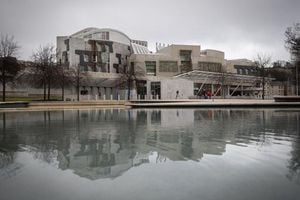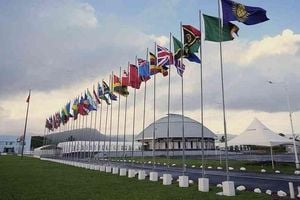Legal battles over LGBTQ+ rights are intensifying on both sides of the globe, with landmark cases and policy debates unfolding from the United States to India. As courts consider the rights and recognition of queer individuals, the outcomes promise to shape the daily realities of millions. Recent developments highlight the persistence of discrimination—and the determination of activists and allies to challenge it.
In Colorado, Kaley Chiles is at the center of a lawsuit against conversion therapy, a practice widely condemned by medical experts for its harmful effects on LGBTQ+ youth. According to reporting by Jason Van Ness, the stakes of her case, Chiles v. Salazar, have soared as the U.S. Supreme Court prepares to hear arguments. The outcome could have sweeping implications, especially as LGBTQ+ youth face mounting risks amid broader societal upheaval. Chiles’ legal fight is emblematic of a larger struggle: the ongoing resistance against laws and practices that seek to erase or marginalize queer identities.
Meanwhile, in India, a different kind of legal challenge is underway. On August 14, 2025, a same-sex couple petitioned the Bombay High Court to contest provisions of the country’s Income Tax Act that, as currently interpreted, allow only heterosexual spouses to exchange gifts without incurring a tax penalty. Section 56(2)(x) of the Act taxes gifts exceeding 50,000 rupees (about $570.96) as income, but carves out exceptions for "relatives"—a category that includes "spouses." The rub? The law doesn’t define "spouse" to include same-sex partners, effectively excluding queer couples from the exemption.
The petitioners, represented by a team of lawyers including Dhruv Janssen-Sanghavi and Tejas Popat, argued that this exclusion amounts to discrimination and violates their fundamental rights under Articles 14, 15, and 21 of the Indian constitution. These articles guarantee equality before the law, prohibit discrimination on grounds including sex, and protect the right to life and personal liberty. As the Bombay High Court issued notice to the attorney general and scheduled a hearing for September 18, 2025, the petitioners’ case has become a flashpoint in the ongoing battle for LGBTQ+ equality in India.
"The Writ Petition is filed to declare and hold that the term ‘spouse’ appearing in the explanation to the fifth proviso to Section 56(2)(x) is unconstitutional inasmuch as it excludes the Petitioners from the scope and definition of the term ‘spouse,'" the judges stated, as reported by the Washington Blade. The petitioners are seeking either a declaration of unconstitutionality or an interpretation of "spouse" that would extend the benefit to same-sex couples in long-term, stable relationships.
Harish Iyer, a prominent LGBTQ activist, underscored the significance of the case in an interview with the Washington Blade. "Our fight for our rights is our lifelong resistance. Rights are not a given, they are a continuous defense—against erasure, against silence, against the comfort of forgetting. The Puttaswamy judgment reminded us that privacy is not a privilege, but a constitutional promise; and in that promise lives the freedom to love, to live, and to be." Iyer emphasized that while legal victories provide moments of recognition, the struggle for equality is ongoing and often exhausting, impacting both mental health and financial security.
The Supreme Court of India, in a 2023 decision, declined to extend marriage rights to same-sex couples but did urge the government to consider measures that would provide queer couples with economic benefits currently reserved for heterosexual spouses. The court recommended a committee be formed to examine access to entitlements such as joint bank accounts, pensions, succession rights, and health insurance—an acknowledgment that the absence of legal recognition leaves queer couples vulnerable.
Ankit Bhupatani, another LGBTQ activist and global DEI leader, highlighted the broader ramifications of the Bombay High Court petition. "This reflects the gap between constitutional morality and statutory reforms. While the Supreme Court in Navtej Johar (2018) declared that LGBTQ persons are equal citizens, and in the marriage equality case acknowledged our hardships, the implementation of those declarations depends on proactive steps by the legislature and the executive. Unfortunately, successive governments have failed to do this work," Bhupatani told the Washington Blade. He noted the emotional and material toll of such discrimination, from reinforcing social stigma to imposing real financial hardships on queer families.
"When the law penalizes queer families, it perpetuates inequality and economic hardship. This case, therefore, is not just about taxes, it is about affirming that queer Indians deserve the same dignity, rights, and protections as anyone else under the constitution," Bhupatani said.
These legal battles are unfolding against a backdrop of both progress and backlash. In India, recent court decisions have affirmed the rights of transgender individuals, with the Andhra Pradesh High Court ruling that trans women are entitled to the same legal protections as cisgender women, including under laws addressing domestic cruelty. Yet, the struggle for comprehensive recognition and equal treatment persists.
In the United States, the Supreme Court’s upcoming review of Chiles v. Salazar could set a precedent for how conversion therapy is addressed nationwide. Advocates argue that the case’s outcome will have far-reaching consequences for the safety and well-being of LGBTQ+ youth, who remain at heightened risk of mental health challenges and discrimination.
As these cases move forward, activists and community members on both continents are rallying for change. They insist that equality cannot be piecemeal and that rights must be actively defended—not just in courtrooms, but in the broader fabric of society. The outcomes in Colorado and Mumbai will be closely watched, not only for their immediate impact but for the broader message they send about the value of dignity, inclusion, and justice for all.
With the world’s attention focused on these pivotal legal contests, the coming months may well define the next chapter in the global movement for LGBTQ+ rights. For many, the hope is that justice will not remain blindfolded to the realities—and the families—of queer people everywhere.




